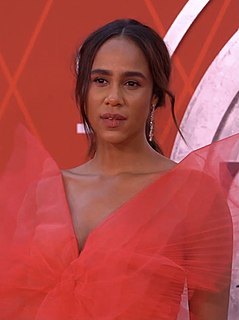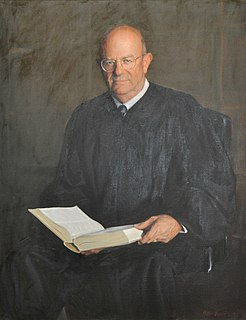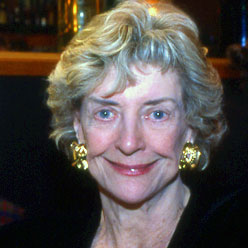A Quote by Zawe Ashton
The actors I admire always have something to say, or a level of poetry, belief, activism or intelligence about what they do or how they feel.
Related Quotes
I do not see how a man can work on the frontiers of physics and write poetry at the same time. They are in opposition. In science you want to say something that nobody knew before, in words which everyone can understand. In poetry you are bound to say ... something that everyone knows already in words that nobody can understand.
Commenting to him about the poetry J. Robert Oppenheimer wrote.
The intelligence community's 2002 National Intelligence Estimate (NIE) stated, in a formal presentation to President Bush and to Congress, its view that Saddam had weapons of mass destruction - a belief in which the NIE said it held a 90% level of confidence. That is about as certain as the intelligence community gets on any subject.
The Divine Comedy is a political poem and when you say poetry is not about - he's always quoted out of context, that "poetry makes nothing happen," that doesn't mean you shrug your shoulders and don't try to make anything happen. And Dante felt that poetry was engaged, there was a point of view; it's not my point of view, it's orthodox medieval Christianity, and I have my troubles with that. He didn't feel that you could just rule out so important a section of life - we care about these things, and it's out of caring about them that we write poetry.
I was raised in a strict fundamentalist household, and I always say that gives you a muscle of belief. I want to believe in something, but I don't believe in what my parents believed in. Poetry has taken the place, or I think the arts have taken the place, of religion in my life. I wanted to see how that was working out through the poems.
The deeper reality is that I’m not sure if what I do is real. I usually believe that I’m certain about how I feel, but that seems naive. How do we know how we feel?…There is almost certainly a constructed schism between (a) how I feel, and (b) how I think I feel. There’s probably a third level, too—how I want to think I feel.
One can say that the disaffection is still a lingering naiveté about, not the place of poetry in the world, but - how to say this - the moral and intellectual presence of poets in the world. And while this may seem an old conversation to many poets who roll their eyes and say, "Here we go again about the function of poetry," I think that conversation, about poetry as an engaged art in a world that is full of regression or still lacking in progress, is still really not well-developed. It's almost an avoided conversation.
I definitely notice the absence of character in most poetry, which is not so say that I'm an innovator in that regard. Character-based poems are not weird or new by any stretch but they feel strange and new because the atmosphere is one in which no one does that. People always talk about, and with good reason, poetry's unpopularity. When people say that they forget or they brush aside the fact that in the middle part of the last century poetry was immensely popular. Dylan Thomas was basically a rock star; so was Anne Sexton.
The way the left is reacting to the death of Fidel Castro up against the incontrovertible facts of who he was, you want to talk about a disconnect. In fact, I don't think it is a disconnect. I think the left, the power brokers, the leaders, I think they actually did admire the guy. I think this is what they think Castro's power - I've always said, the people have asked me, how do these actors and people and these leftist politicians, how come they admire people like this? I said, "They envy their power." And I think there may be a lot to that.



































